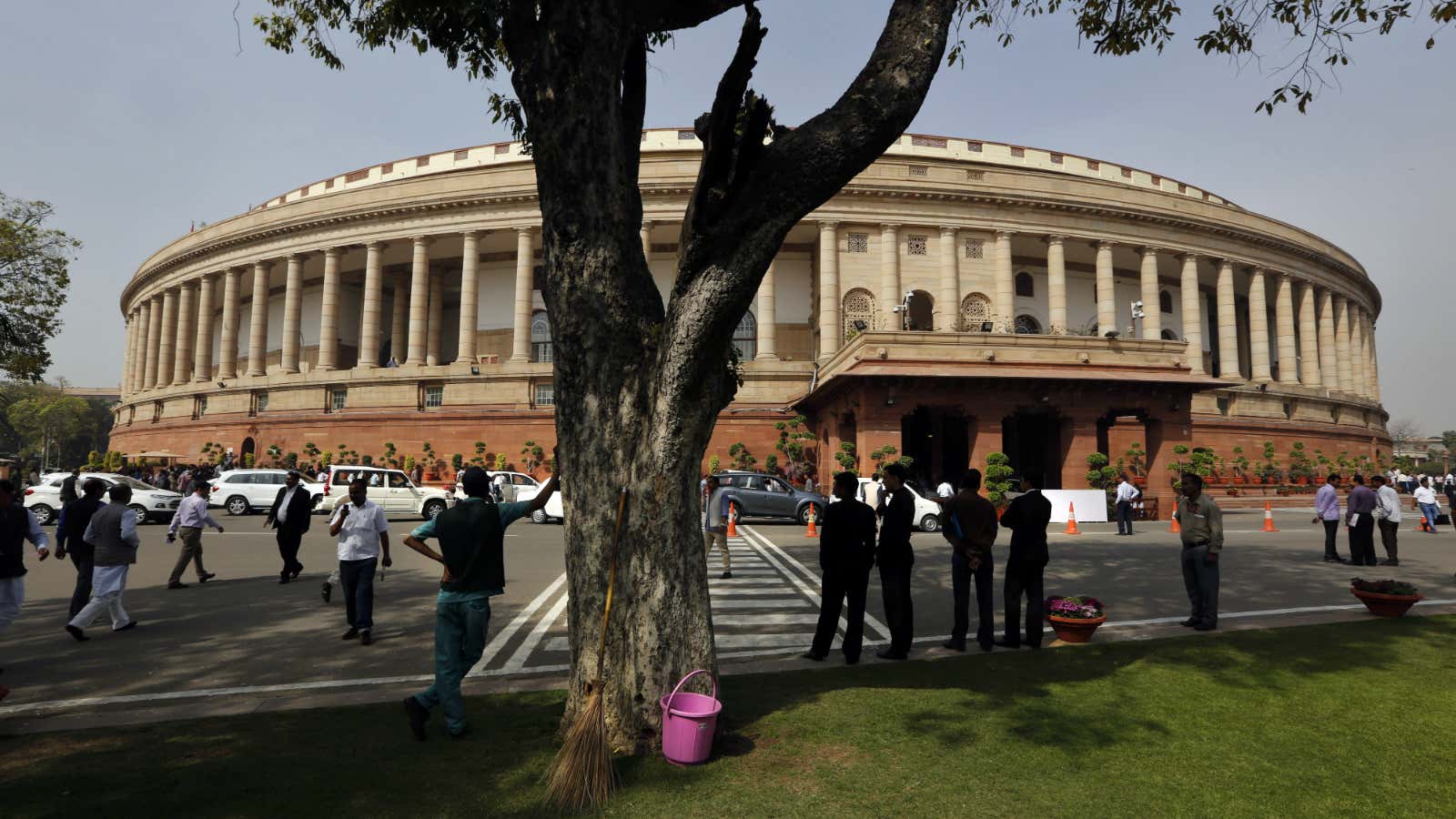A little over half a decade ago, the Bhutanese were so reluctant to embrace democracy that their beloved king had to gently goad the tiny Himalayan nation into voting to form their first elected parliament.
“It was a bit of a shock,” is how Bhutan’s then-chief justice, Lynpo Sonam Tobgye, described the transition in 2008.
Since then, the mostly rural nation of 750,000 people has weathered its democratic evolution with unusual dexterity, especially when you consider that its neighbourhood is overflowing with political basket cases.
The abundance of constitutional chaos in South Asia also means that Bhutan has mostly had only one regional power to help it along during its still-young experiment with democracy, India.
In fact, in 2011, the election commissions of Bhutan and India signed a memorandum of understanding (pdf) for the “promotion of exchanges of knowledge and experience in electoral processes,” among other things. In 2013, India even shipped nearly 2,000 of its electronic voting machines to Bhutan for the country’s second parliamentary election.
So, it wasn’t without irony that Indian parliamentarians on Aug. 11 provided their Bhutanese counterparts with a stellar performance when the visiting delegation made a stop at the Rajya Sabha.
“We hope that during their stay here they would be able to see and learn more about our parliamentary system,” Rajya Sabha chairman Hamid Ansari hopefully announced, knowing fully well that parliament has been in a gridlock for weeks.
Members of the upper house, as if on cue, burst into laughter, with an unidentified voice even asking: “Why did you add that line, sir?”
The smiling, perhaps embarrassed, delegation of Bhutanese parliamentarians simply looked on from the gallery.
Soon after, the Rajya Sabha swiftly lapsed back into the now-established pattern of disruptions, followed by the cessation of business.
Some lessons
Sadly, since such unfortunate events robbed the visiting Bhutanese delegation of a fine opportunity to learn, Quartz would like to humbly submit five lessons in parliamentary democracy, as practiced by India’s outstanding lawmakers.
- Return the favour: The generosity of India’s parliamentarians is boundless. Therefore, the interests of the nation be damned, they are seemingly duty-bound to return the favours their opposition counterparts once bestowed upon them. So, if the hallmark of your term in government was that opposition-led disruption ground work to a halt, ensure that the next government, too, has such happy occasions. After all, we all know too much legislative work can be a distraction, especially when it involves key legations like the goods and services tax. The real job of nation-building surely happens elsewhere.
- Ban first, think later: That actual work of governance, however, does include banning things that have little impact on the quality of life of the majority of your citizens. After the outrage, mostly on the internet, follow up with an expeditious volte-face, preferably within 48 hours. Coming from a sensitive neighbouring nation such as Bhutan, perhaps you could begin by banning the incendiary All India Bakchod. After all, an accurate depiction of India and Indians may well be harmful to our friendly relations.
- Manage the media: Yes, the internet only arrived in Bhutan in 2000, not long after the ban on television was lifted in 1999, but it just can’t be helped. Unless you’re speaking to at least a dozen TV cameras, you’re not saying much, although having a few million Twitter followers can sometimes be a legitimate excuse. Alongside, perfect the science of leaking government documents and private letters. Also, master the art of poker-face denials; if in doubt, relentlessly digress. And if all else fails, attempt at muzzling the media. Otherwise, simply fund your own newspaper and/or TV channel. Online news isn’t fashionable yet.
- Protect the perks: Only you know the true pressure of being a parliamentarian, so it is up to you to protect every ridiculous perk that you may enjoy, whether in government or in opposition. Because Indian lawmakers help run the world’s biggest democracy, they also have the privilege of running it from the world’s biggest bungalows. Real estate is real status. And since surely you must have an enormous appetite, for progress and such things, insist on the nation’s most subsidised canteen. A hungry lawmaker is a walking scandal.
- A sense of humour: And lastly, as our members of parliament have so ably exhibited, never lose the ability to laugh at yourself. Little else will help you come to terms with an electorate often infuriated at your ineptitude.
We welcome your comments at ideas.india@qz.com.
